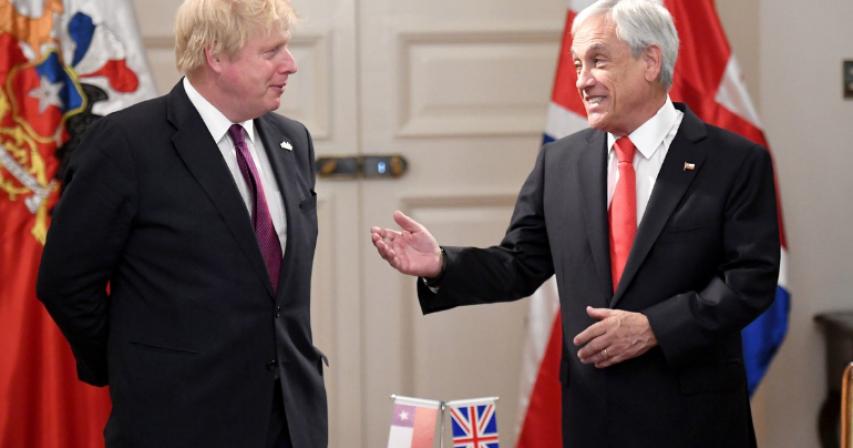Post-Brexit UK to reshape its foreign policy
- 4 years ago

The government is to set out its post-Brexit foreign policy, promising to reshape an "outdated international system" into one that better protects the UK's interests and values.
Its year-long review of foreign and defence policy marks a shift towards Indo-Pacific countries such as India, Japan and Australia.
It will also pave the way for the UK to increase stocks of nuclear warheads.
Labour says the strategy will leave the UK "woefully unprepared".
Later Boris Johnson will unveil the results of the Integrated Review of security, defence, development and foreign policy, which the government says will address "the challenges and opportunities the UK faces in a more competitive world".
They will include a White House-style situation room built in the Cabinet Office as well as a new counter-terrorism operations centre intended to improve the speed of response to terrorist incidents.
Setting out the conclusions of the 100-page document, titled Global Britain in a Competitive Age, the prime minister is expected to say that he is "profoundly optimistic" about the UK's place in the world and its "ability to seize the opportunities ahead".
"The ingenuity of our citizens and the strength of our Union will combine with our international partnerships, modernised Armed Forces and a new green agenda, enabling us to look forward with confidence as we shape the world of the future," he will say.
The government says the Indo-Pacific is "increasingly the geopolitical centre of the world" and the prime minister will visit India at the end of April in his first major international visit since the UK's withdrawal from the European Union.
To underline the policy shift, the HMS Queen Elizabeth aircraft carrier will undertake its first deployment to the Indo-Pacific region.
While the government says NATO remains the bedrock of defence and security in the Euro-Atlantic, it wants to work alongside allies to "shape a more open international order in which democracies flourish".
It says "new powers are using all the tools at their disposal to redefine the international order and - in some cases - undermine the open and liberal international system that emerged in the wake of the Cold War".
BBC security correspondent Gordon Corera said the aim of the review would be to showcase offensive as well as defensive capabilities, suggesting high-tech investment in fields like artificial intelligence will help modernise the military, maintain Britain's power and bring economic growth at home.
But he said becoming a technology "superpower" and competing with the likes of China was no easy task.
Labour's shadow foreign secretary Lisa Nandy said there was a "yawning chasm" between the government's words and actions and said government policy had "left our defences down in our own backyard".
'Black hole'
The publication of the review comes months after Boris Johnson announced a £16.5bn increase in defence spending over the next four years.
At the time, he said the funding would allow for investment in an agency dedicated to artificial intelligence and a "space command" capable of launching the UK's first rocket by 2022, as well as a cyber corridor across the north of England which would include headquarters for the new National Cyber Force.
But MPs on the Commons Public Accounts Committee have warned the extra funding could be swallowed up by a "black hole" in department finances, with the Ministry of Defence (MoD) facing a potential £17bn shortfall in its current equipment programme.
The committee said a further £20bn the military wanted to invest has not been included in the budget and the MPs also accused the MoD of making unrealistic claims about future efficiency savings.
Its chair, Meg Hillier, said it was crucial that the extra money for defence was not eaten up by the "constant debilitating" budget overruns that "have been eroding our national defence and security for years".
The MoD said the increased funding would "restore financial sustainability".
Military chiefs have said the investment in new technologies will mean cuts to some "industrial age" capabilities, with the Army expected to slash troop numbers as well as reduce its fleet of Challenger 2 tanks.
Tobias Ellwood, Conservative chair of the Defence Committee, said on Monday that the country was about to witness a "shocking reduction" in conventional hard power in favour of "niche capabilities".
He said the UK must adapt to new threats but this "does not mean that the old threats have disappeared", adding that severe cuts to the armed forces would "worry our closest allies and delight our competitors".
Source: BBC
Comments